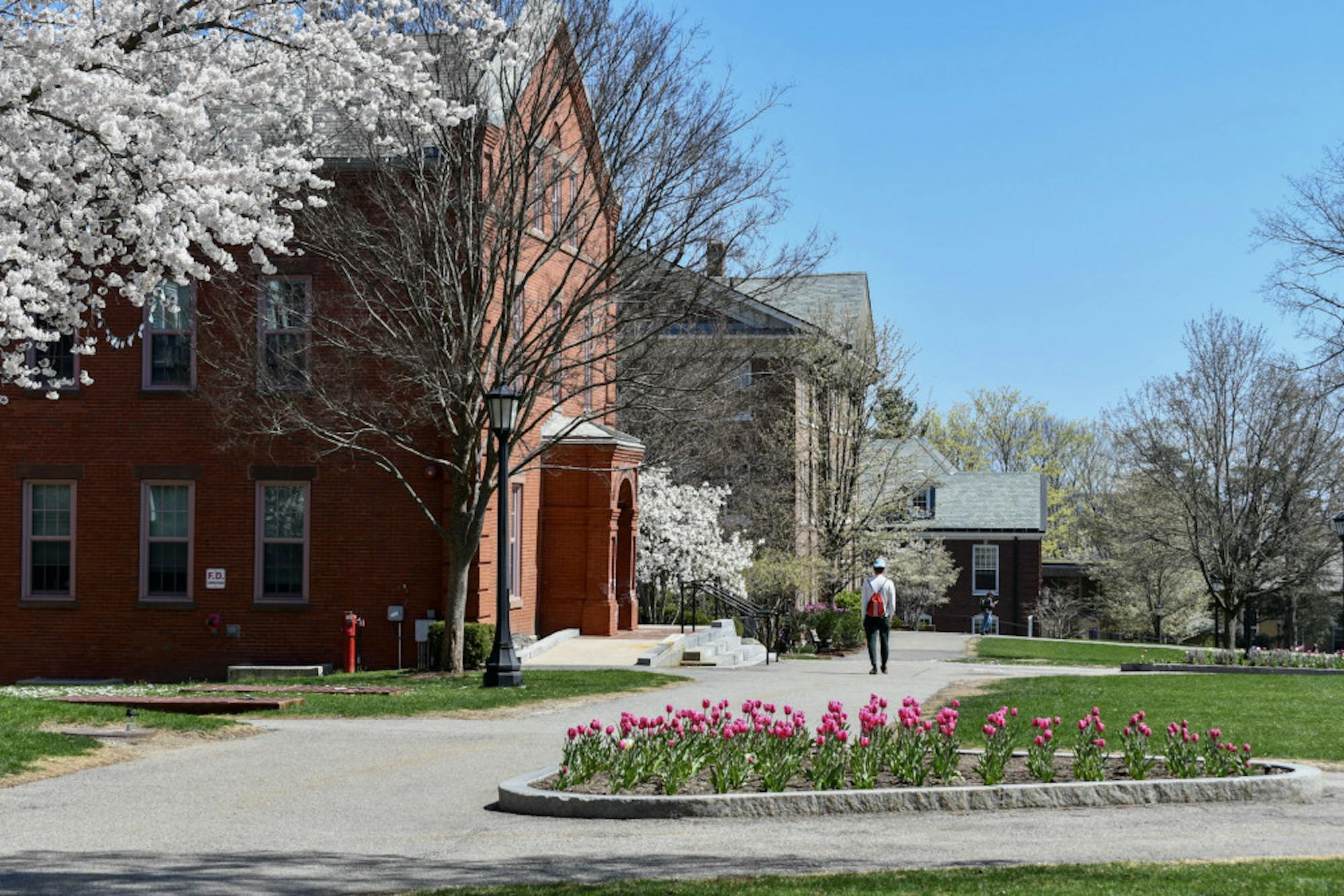For the sixth consecutive year, Tufts is hosting Global Tufts Month. Throughout the month of March, a series of collaboratively organized events will be put on following the theme “Humanitarian Aid: Working Together in Times of Conflict.”
According to its website, Global Tufts Month represents a variety of internationally oriented events coming together to celebrate Tufts student, faculty and staff accomplishments and commitment to building a globally engaged campus. It aims to generate open dialogue and promote cross-cultural connection while spotlighting different forms of international initiatives at Tufts. While Global Tufts Month is hosted by the Office of the Provost and Diana Chigas, senior international officer, some of its events are independently organized by students and other Tufts organizations.
“We’ve organized this, but we want it to be for the community. It’s not that the Office of the Provost is organizing every single event or anything like that,” Christine Hollenhorst, senior program administrator in the Office of the Provost, said.
Global Tufts Month started in 2019 as an extension of the national initiative International Education Week, according to Hollenhorst.
“It started out pretty small, just one week. … We expanded it to a month after the first year, just so that there was more time to do all the different activities,” Hollenhorst said.
This year’s theme holds particular significance because of its connection to Tufts’ Scholars at Risk Program. This program brings academics and intellectuals from global conflict zones to Tufts, so that they can continue their work in safety with support from the university.
“We want to support people who have something to contribute to their societies and to the world but can’t do it because they’re under threat,” Chigas said in an interview with TuftsNow.
“Last year … we kicked off our Scholars at Risk program at Tufts. We bring in scholars, it could be a faculty member who has been displaced by war,” Hollenhorst said. “We were trying to bring the theme into that, to kind of tie it together.”
This year’s calendar has included events such as a book launch event for Scholar at Risk Dr. Sima Samar’s book “Outspoken: My Fight for Freedom and Human Rights in Afghanistan,” a conversation titled “Do What You LOVE? Creative Work in Global Perspective,” and a showing of the documentary film “Promises” on the Grafton campus.
While a significant part of the event, the theme is not all encompassing.
“The theme of this year is humanitarian aid, but if someone wants to have a salsa dancing class … we’re totally happy to promote that too,” Hollenhorst said.
In order to promote more events, the Office of the Provost offered “mini-grants” of up to $500 to any students, faculty or staff who wanted to host an event.
“We hope that it would be student events or events that are a collaboration between students and faculty, because I feel like there’s usually less funding for things like that,” Hollenhorst said.
One such student organization is Tufts for Health Equity, which utilizes sustainable partnerships with local nongovernmental organizations to promote global health and education initiatives. Their event, titled “An Evening of Health, Education, and Culture in Post-Earthquake Nepal and Post-Genocide Rwanda,” discussed the work that they have done with their NGO partners, PHASE Nepal and Move Up Global.
“Our event … will feature some [Tufts for Health Equity] members who have had the opportunity to travel and work with PHASE Nepal and Move Up Global in rural parts of Nepal and Rwanda. Our members will talk about their experiences collaborating with our partners, as well as discuss the culture, history, and language they learned while working in these contexts,” co-Director of Partnerships Dan Nguyen wrote in an email to the Daily. “The event will connect students and staff across Tufts’ schools who share a similar excitement to learn about global health, humanitarian aid, and global cultures from their peers. Especially through sharing a meal and interacting in smaller workshops, attendees will recognize the potential to contribute to global health equity … among people of all ages, roles, and backgrounds.”
Nguyen and her organization used their mini-grant to provide event attendees food from local Nepali and Rwandan restaurants — an intentional allocation on behalf of the organizers.
“A lot of the money goes towards food that people want to have at their events,” Hollenhorst said. “So this year, we said that we would prioritize proposals that would use a local restaurant.”
While the majority of Global Tufts Month has passed, events are far from over. Over the next week, seven Global Tufts Month events will be held, ending with a screening of the Mexican film “The Chambermaid” on March 31.
“We encourage people to go to events, host events,” Hollenhorst said. “This is not a closed event that we’re packaging and giving out to people. We really want it to be a community thing.”






